British Prime Minister Rishi Sunak says China an ‘epoch-defining’ challenge
China is ‘increasingly authoritarian at home and assertive abroad’, Rishi Sunak says in an interview, as Britain announces $9bn in extra spending on nuclear-weapon capabilities and support for Ukraine.
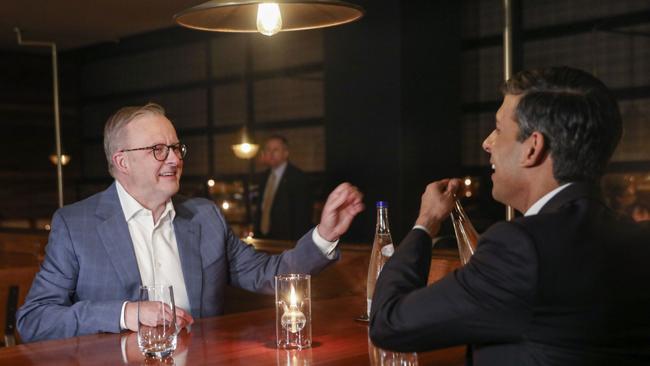
China poses an “epoch-defining systemic challenge” to the UK and its allies, British Prime Minister Rishi Sunak says, as his government announced it will spend an extra £5bn ($9bn) investing in its nuclear-weapon capabilities and replenishing munitions stockpiles to bolster support for Ukraine and deter an increasingly assertive Beijing.
“It’s a country with fundamentally different values to ours, and I think over the last few years it’s become increasingly authoritarian at home and assertive abroad,” Mr Sunak said of China, during an interview.
“Its behaviour suggests it has the intention — but also its actions show it is interested in reshaping the world order and that’s the crux of it.”
The Chinese embassy in Washington had no immediate comment.
The British government said it would spend the extra funds over the next two years to reinforce its stretched military. The bulk of those funds would go into the country’s nuclear program, including enhanced support for its submarine fleet. The government is also buying fresh ammunition supplies to replace the equipment that it has given to Ukraine during its war with Russia.
The boost in military spending comes as Mr Sunak travels to San Diego to meet with both US President Joe Biden and Australian Prime Minister Anthony Albanese to discuss a pact that involves the three countries sharing defence technology.
The so-called Aukus deal would, in particular, give Australia nuclear submarines for the first time, as part of an attempt to create a more muscular military presence in the Pacific, where China has pushed to establish territorial dominance.
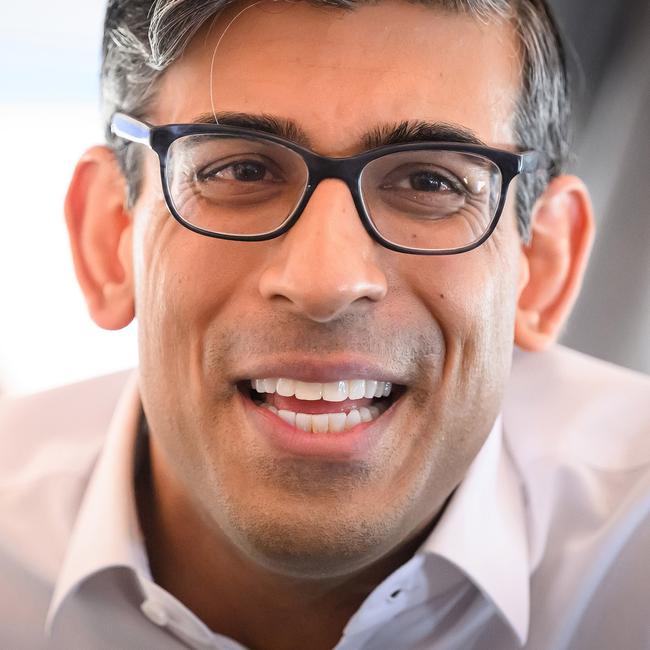
The enhanced British stance toward China mirrors increased concern among US national-security officials over what they see as the increased threat from China: militarily in the South China Sea; technologically in crucial areas; and diplomatically across the world, including China’s role in brokering recent steps toward a rapprochement between Saudi Arabia and Iran.
“The threats to our security are increasing, the world has become a more volatile place,” Mr Sunak said. “What we need to do as allies is out-co-operate and out-compete our adversaries.” The invasion of Ukraine, meanwhile, has forced European nations to revisit military-spending plans as they try to counter Russian belligerence and help Ukraine repel Russian forces that invaded more than a year ago. The UK is, after the US, the biggest donor of military equipment to Ukraine. It has advocated for giving more advanced capabilities to Ukraine, such as longer-range weapons, to help Kyiv maximise any advantage it can gain during an expected counter-offensive against Russian forces in the northern spring.
In recent months, France and Germany have suggested that giving Ukraine the best chance of success on the battlefield could potentially pave the way for Kyiv to consider negotiating for a cessation of hostilities, though neither Ukraine nor Russia has indicated any readiness to engage and thorny issues abound, such as whether Ukraine should insist on restoring a territorial sovereignty that includes Crimea, which Russia seized in 2014.
“If we can get Ukraine the particular things they need, whether it’s air defence, artillery, heavy armour in the form of tanks and longer-range weapons, those are the key capabilities and support they need now in order to make sure that offensive has the best possible chance of success,” Mr Sunak said.
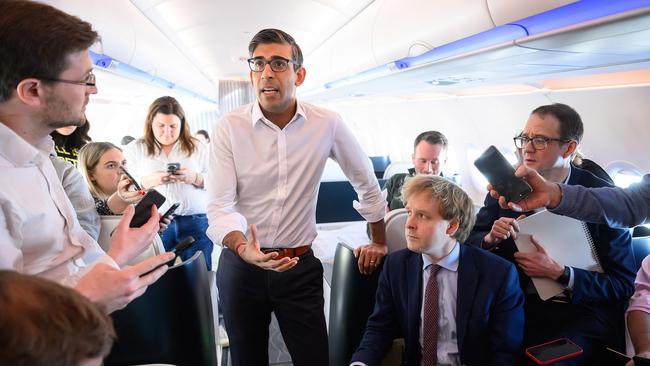
He declined to put a timeline or scope on any prospect of peace talks.
“It’s Ukraine’s right as a sovereign country to decide what it thinks is an appropriate settlement for itself,” he said.
“I view our job as putting them in the strongest possible position to do that, whenever the moment they feel is appropriate.”
Ukraine’s Western allies have raised the prospect of security assurances for Kyiv designed to deter any future Russian aggression that one day might bring Ukraine into NATO.
“Some kind of longer-form relationship and security has to be part of the equation here: to provide Ukraine with the security and collective security that we all share on the European continent,” Mr Sunak said, though he added the focus now is on training Ukrainian armed forces on NATO-standard equipment.
In an effort to encourage allies to follow suit, Britain was the first to offer Ukraine more than a dozen Challenger II tanks. The UK has also recently supplied Ukraine with long-range missiles to allow it to strike deep behind front lines.
Mr Sunak recently met with Ukrainian President Volodymyr Zelensky and pledged to consider sending jet fighters to the country. British Defence Secretary Ben Wallace subsequently explained that the jets would most likely be sent once the current conflict was over.
The military investment of £5bn is less than some officials in the British Ministry of Defence hoped for, as they seek to implement the government’s ambitious strategy of shoring up European defence against Russian aggression and bulking up influence in the Indo-Pacific region. UK defence chiefs wanted a budget increase of roughly £11bn, on top of the £71bn the country spent last year on defence.
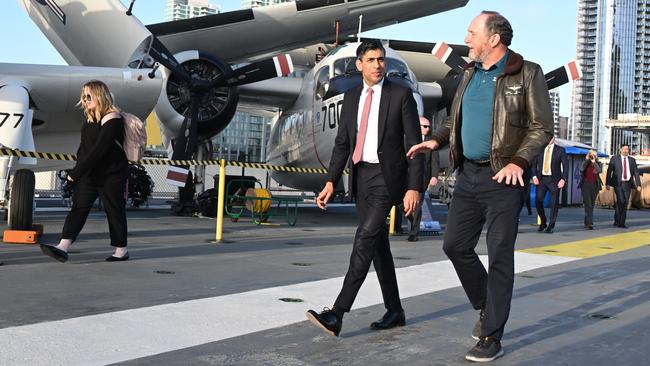
But the government’s budget is stretched after the worst of the Covid-19 pandemic, and the nation’s economy is stagnating as inflation bites. Indeed, while the UK had previously committed to accelerating defence spending to 2.5 per cent of annual economic output by 2030 from roughly 2.2 per cent currently, it said on Sunday that was a long-term target.
The increased military spending is part of a new national-security review, expected on Monday night (AEDT), which comes two years after the ruling Conservative government published a reassessment of Britain’s foreign-policy priorities, called the Integrated Review. That review argued that the world order that Britain had helped to build after World War II was crumbling and that globalisation was in retreat.
The government is looking to build a more agile fighting force that can counter influence from malign states abroad and allow the UK to become a nimble powerbroker worldwide. The government ordered a strategy revision after the Russian invasion of Ukraine and amid growing concerns among British spy chiefs about Chinese economic coercion.
Mr Sunak’s predecessor, Liz Truss, was set to designate China as a threat to UK national security, on par with Russia, but she was forced out of office before this change was implemented.
Mr Sunak declined to classify China as a national-security threat, saying the country needed a foreign-policy approach that was sophisticated enough not to be boiled down to two words. He also said the UK would need to co-operate with China on global issues such as climate change and global financial stability, an approach the US also has taken.
Up until now the UK has sought to maintain a nuanced position toward China, saying it would still pursue trade links with the country while investing in defending against China’s growing assertiveness.
The security review in 2021 concluded that China is “the biggest state-based threat to the UK’s economic security”. The UK plans to invest more in Mandarin-language training and diplomatic Chinese expertise. It also intends to strengthen its international sanctions enforcement.
The national-security review is also expected to update the UK military strategy, which in 2021 shifted in focus away from tanks and other heavy materiel toward a leaner hi-tech fighting force. This decision to abandon mass is now being questioned by military experts who say the war in Ukraine highlights the continuing importance of scale in war and maintaining existing weapon supply chains.
In 2020 the UK government announced its biggest increase in military spending since the Cold War in a bid to secure its position as the US’s main military ally in Europe after Brexit, Britain’s divorce from the EU. However, the war in Ukraine is placing the government under pressure to raise spending further and ensure its military can function properly after years of underinvestment, when the army has shrunk to its smallest size since the Napoleonic era.
Mr Wallace is reviewing a decision to reduce the country’s number of main battle tanks from 227 to 148. Some officials expect the government to alter its strategy of cutting army personnel numbers. The UK government said it would continue to lead conversations about burden-sharing with other allies at a NATO summit this summer and would review defence spending after 2025.
The Wall Street Journal

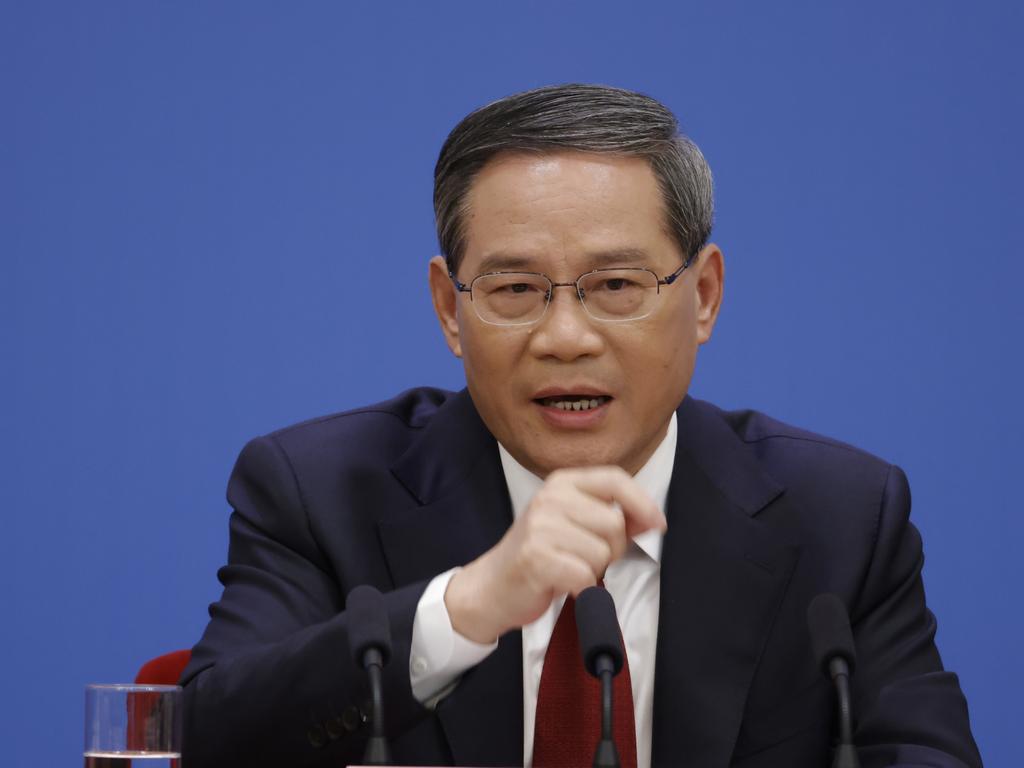
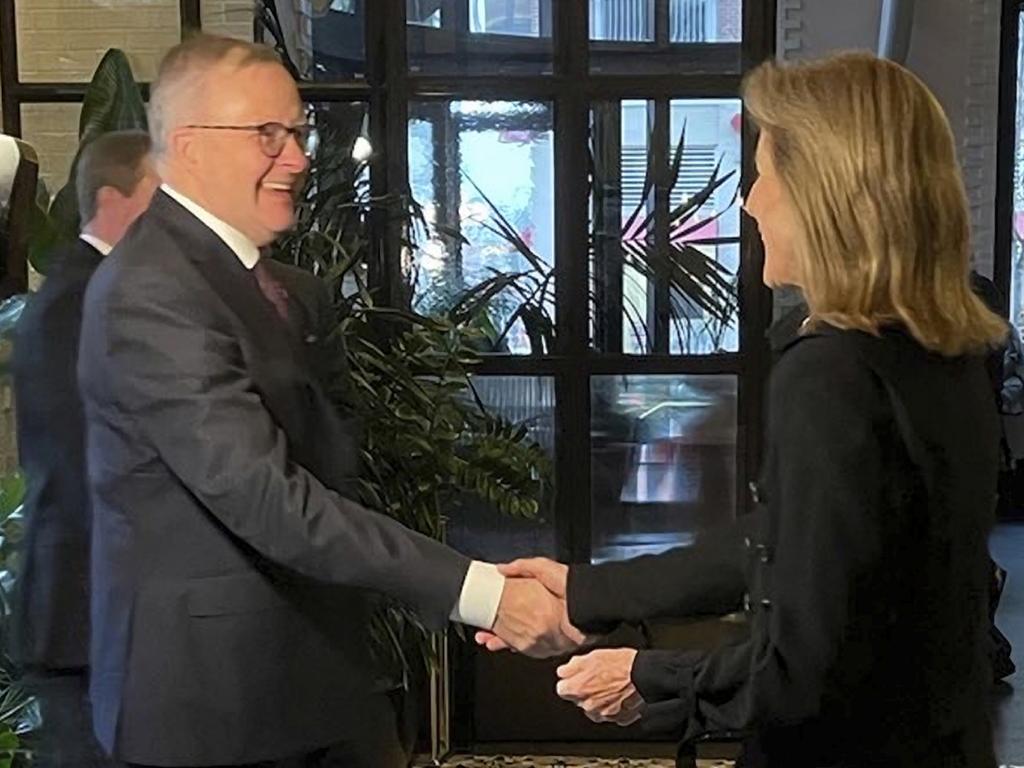

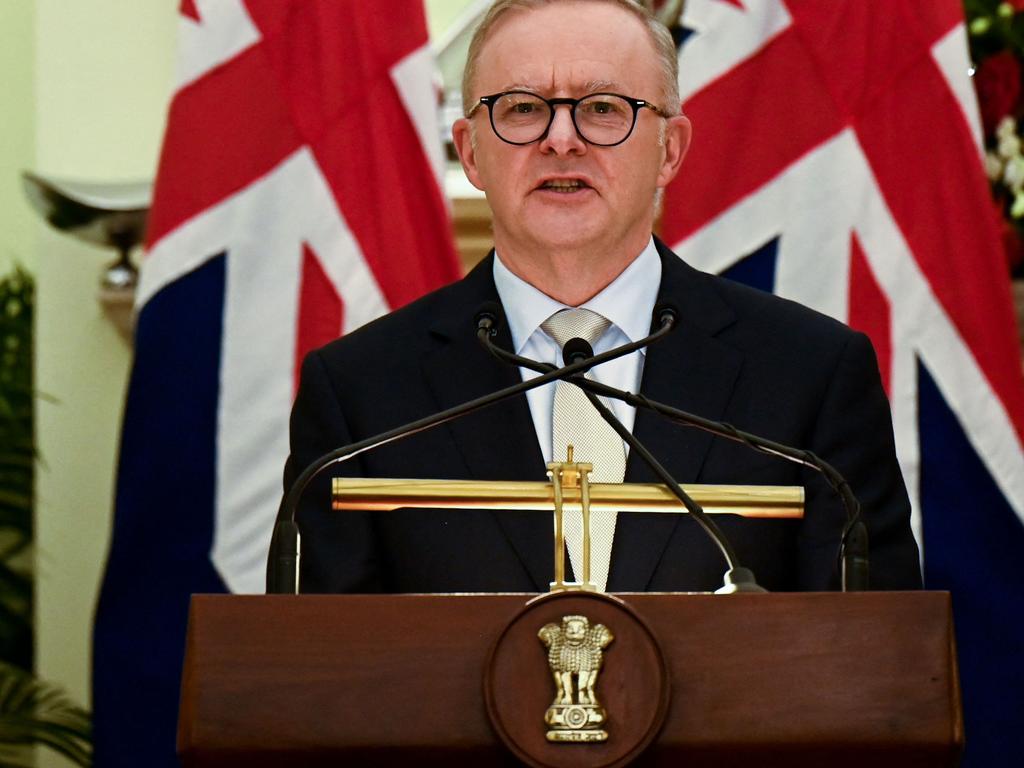


To join the conversation, please log in. Don't have an account? Register
Join the conversation, you are commenting as Logout